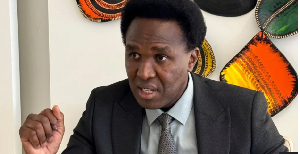The beautiful game meets the “Great Game” of international rivalry for African resources on Saturday when Ghana takes on the US in the football World Cup.
This time, Ghanaians’ passionate support for their national team is given extra fuel by a standoff between their government and US companies over the future development of the offshore Jubilee oilfield.
The dispute has entered a potentially bruising phase with signs of intensifying efforts by Texan wildcatters Kosmos, who drilled the first successful Jubilee well in 2007, to press their case for selling to ExxonMobil onto the agenda of US-Ghana relations.
Kosmos, which is backed by US private equity groups Blackstone and Warburg Pincus, agreed to sell its 23.5 per cent stake in the Jubilee field to ExxonMobil last year. But the Ghana government has declined to approve the $4bn deal, partly because it wants to control who participates in a venture critical to the country’s fortunes.
Ghanaian authorities allege that Kosmos was in breach of regulations when it shared sensitive data with potential bidders without first informing the Ghana National Petroleum Corporation (GNPC).
Another bone of contention has been the link between Kosmos and EO, a small company founded by two allies of former president John Kufuor, whose equity in the oilfield is financed by the Texan company.
Sources close to Kosmos claim factions within the Ghana government are using these issues to thwart the deal because they want to buy the stake at below-market value.
The Jubilee field, which may hold at least 1.2bn barrels of oil, has also attracted interest from Chinese, Korean, French, Irish and British companies.
Strengthening the US foothold in the Gulf of Guinea as a means of reducing energy dependency on the Middle East became a priority under the former Bush administration.
The fact that Ghana also has a relatively healthy democratic system is another plus, and one highlighted by president Barack Obama’s decision last year to choose the country for his first official visit to Africa.
“Ghana is where Washington needs to put a backstop on China’s invasion of Africa,” says an Accra-based businessman sympathetic to US ambitions.
To press its case, Kosmos has taken on Riva Levinson, a Washington lobbyist, with a formidable reputation.
A Kosmos representative declined to answer questions on recent developments, instead sending examples of negative press coverage of Ghana, most recently in Forbes magazine, which listed the country among the world’s 10 worst-run economies.
Nii Moi, a Ghanaian economist who sits on the government’s planning committee, said the Forbes article was a reminder of the “insidious forces at work against Ghana as the scramble for the country’s oil intensifies”.
Amid the polemics, officials in both Washington and Accra insist there is nothing to worry about. Ghanaian officials listed a host of other US investments in their country which have been successful.
Nevertheless, pride on both sides makes victory in Saturday’s football game a factor for oil men as well as soccer fans.
Business News of Saturday, 26 June 2010
Source: Financial Times
















